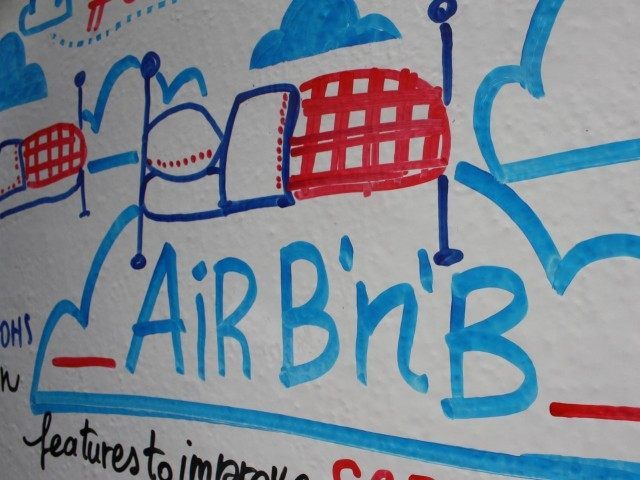With the explosive growth of the “sharing economy,” entrepreneurial start-ups are mining businesses opportunities within the expanding “ethospheres” created Airbnb and Uber.
The Airbnb home-sharing empire has become so massive and geographically dispersed that it has spawned an entire micro-industry of differentiated start-ups that serve the platform’s users in a myriad of different ways. Many help “hosts” with strategies from pricing their rentals and cleaning homes between guest stays, to handing key deliveries.
Because the eight-year-old company has welcomed over 60 million guests to 1.5 million rental listings, in 34,000 cities, located in 190 countries, “Airbnb has become more than just a company. It’s become an ecosystem,” Nathan Tobin, head of sales for “Guesty,” told SiliconValley.com.
For three percent of the rental fees, Tel Aviv-based Guesty provides 24-hour-per-day interface with rental customers for 4,000 Airbnb “hosts” from around the world that have full-time jobs. Tobin told SiliconValley.com that Guesty books reservations, coordinates the guest’s arrival, and fields questions during rental stays.
Other are following in its wake: “Beyond Pricing” promises to increase host revenue by up to 40 percent by helping hosts adjust their prices according to market demand; ‘Keycafe’ provides secure renter key deliveries and pick-ups in major U.S. cities; and ‘Properly’ coordinates cleaning services to maximize the use of rentals.
Over time, Airbnb has become so supportive of entrepreneurial companies helping its “hosts” be successful that the company has set up a free bulletin board on a section of its website called “Host Assist” to provide lists of community-rated partner companies.
Founded just seven months after Airbnb, Uber ride-sharing provides over one million rides per day to its eight million users through over 400,000 drivers, in about 300 cities, located in 60 countries. Likewise, SiliconValley.com reports that Uber has created an “ethosphere” of supporting startups.
Temple University law professor Brishen Rogers told the outlet that given what “Apple has done with all the third-party apps created for its iPhone, it’s no surprise that Uber is creating an ecosystem of smaller companies surrounding it.”
In much the same way, the presidential election has inspired the creation of political and media startups. In 2012, Barack Obama’s vaunted data-mining operation considered itself a startup within the broader campaign.

COMMENTS
Please let us know if you're having issues with commenting.